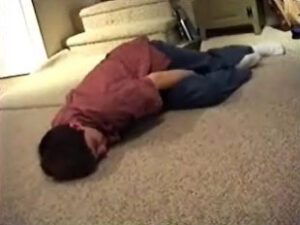Narcolepsy is related to the sleeping cycle. it is a kind of neurological disorder. in this disorder, people face problems in sleeping and waking. so those people who are affected by Narcolepsy may fall asleep anytime in the day and feel sleepy all the time.
so if you want to know The Truth about Narcolepsy then here is the article for you so read this article till the end to get the full information about Narcolepsy.
The Truth about Narcolepsy:-
Narcolepsy is a neurological disorder that affects a person’s ability to regulate their sleep-wake cycle. People with narcolepsy experience excessive daytime sleepiness and may fall asleep suddenly and uncontrollably at inappropriate times and places, such as while driving or in the middle of a conversation. Narcolepsy can also cause sudden loss of muscle tone (cataplexy), vivid hallucinations, and disrupted nighttime sleep. People with narcolepsy find difficulties in staying awake for a longer time.it is a type of attack of intense emotion that results in weak muscles.

Types of Narcolepsy:-
There are two main types of narcolepsy:
Type 1 Narcolepsy:-
This type of narcolepsy is characterized by the presence of cataplexy, which is a sudden loss of muscle tone triggered by strong emotions such as laughter or surprise. In addition to excessive daytime sleepiness, people with type 1 narcolepsy may also experience vivid hallucinations and sleep paralysis, which is a temporary inability to move or speak while falling asleep or waking up. People affected by Type 1 narcolepsy face sleepiness in the daytime.
Type 2 Narcolepsy:-
This type of narcolepsy is characterized by excessive daytime sleepiness without cataplexy. People with type 2 narcolepsy may also experience sleep paralysis and vivid hallucinations, but these symptoms are less common and less severe than in type 1 narcolepsy. patients of this type do not feel any muscle weakness. in this affected people face low severe symptoms.
Symptoms of Narcolepsy:-
There are many symptoms of Narcolepsy. some symptoms are the following:-
Excessive daytime sleepiness:-
Feeling extremely tired and having an overwhelming urge to sleep during the day, even after getting enough sleep at night. These are the main symptoms of Narcolepsy. you will feel fatigued during the whole day however you have taken good sleep at night. you can say it is a kind of attack on sleep.
Hallucinations:-
It is a very harmful symptom of Narcolepsy. it affects people mentally and emotionally. frequent Hallucinations can hamper your daily life. it can come anytime either you are sleeping or awakening. dream-like experiences that occur while falling asleep or waking up.
Sleep paralysis:-
A temporary inability to move or speak while falling asleep or waking up. its effect remains for a few minutes. but at an extreme level sleep paralysis can give trouble in breathing and pressure on the mind.
Disrupted nighttime sleep:-
Frequent awakenings or difficulty falling or staying asleep at night.
Cataplexy:-
Sudden loss of muscle tone, often triggered by strong emotions such as laughter, surprise, or anger. people are fully awake during this attack and there is no harm from this.
Automatic behaviors:-
Performing routine tasks without awareness or memory of doing so. Narcolepsy causes excessive actions during sleep. this affects the normal sleep cycle and causes stress.

Causes of Narcolepsy:-
Genetic predisposition:-
There is evidence that narcolepsy may be linked to certain genetic factors that affect the regulation of sleep.
Problems in Immune System:-
The immune system protects the body from harmful substances and disease cells. Narcolepsy happens because of the low production of hypocretin and affects the sleep cycle.
There are some factors that cause narcolepsy.
- Hormonal changes
- Menopause
- Psychological pressure
- Flu
- other infections
Brain Injuries:-
Narcolepsy may be caused by an imbalance of certain chemicals in the brain, such as hypocretin, which is a neurotransmitter that plays a role in regulating wakefulness and sleep. Injury in the brain can cause traumatic sensations in the brain. it increases REM sleep which is the major symptom of Narcolepsy. with brain injury, brain tumors, and some brain diseases can cause the same situation.
Environmental factors:-
Exposure to certain environmental factors, such as infections, stress, or head injuries, may trigger the onset of narcolepsy in people who are genetically predisposed to the disorder.
Risk Factors of Narcolepsy:-
- Narcolepsy has a strong genetic component, and having a close relative with the disorder increases the risk of developing it.
- Narcolepsy often begins in adolescence or early adulthood but can develop at any age.
- Narcolepsy affects males and females equally, but some studies suggest that the age of onset and severity of symptoms may be different between the sexes.
- Narcolepsy may cause obesity as it slows down the process of metabolism
- People with certain autoimmune disorders, such as type 1 diabetes or rheumatoid arthritis, may be at increased risk of developing narcolepsy.
- Some infections, such as streptococcal infections or H1N1 influenza, have been associated with an increased risk of developing narcolepsy.
- Head injuries or trauma to the brain may increase the risk of developing narcolepsy.
Narcolepsy Diagnosed:-
The following process is used to diagnose narcolepsy:-
- Polysomnography or PSG:- In this type of diagnosis people should need to stay a night under medical observation. medical experts use electrodes for measuring heart rhythm with eye movement, heart rate, muscle movement, and breathing pattern.
- Epworth Sleepiness Scale:- This is a questionnaire that asks about your tendency to fall asleep during different activities throughout the day.
- Multiple Sleep tests:- In this test, the doctor monitors you and times how much you take to fall asleep in the daytime. in this test, your REM sleep is also measured.
- Lumbar puncture:- In some cases, a healthcare professional may perform a lumbar puncture, also known as a spinal tap, to measure the levels of hypocretin in your cerebrospinal fluid. Low levels of hypocretin are associated with narcolepsy.

Treatments for Narcolepsy:-
Medications:-
Stimulant medications, such as modafinil or methylphenidate, are commonly used to treat excessive daytime sleepiness.
Sodium oxybate:-
Sodium oxybate, also known as GHB, is a medication that can improve symptoms of cataplexy and nighttime sleep.
Antidepressants:-
Antidepressants, such as selective serotonin reuptake inhibitors (SSRIs), can be helpful in managing symptoms of cataplexy and other sleep-related symptoms.
Lifestyle changes:-
Maintaining a regular sleep schedule, avoiding caffeine and alcohol, and practicing good sleep hygiene can also help manage symptoms of narcolepsy.
Scheduled naps:-
Taking scheduled naps throughout the day can help reduce daytime sleepiness and improve alertness.
Therapy:-
Counseling, support groups, and other forms of therapy can be helpful in managing the emotional and psychological impact of narcolepsy.
Other treatments, such as light therapy, may also be recommended depending on the specific symptoms and needs of the individual.

Prevent Narcolepsy:-
- Establish a regular sleep schedule and stick to it as closely as possible, even on weekends or holidays.
- Caffeine and alcohol can disrupt sleep and worsen symptoms of narcolepsy, so it’s best to avoid them as much as possible.
- Taking scheduled naps throughout the day can help reduce daytime sleepiness and improve alertness.
- Stay far from pollutants, especially chemical pollutants
- Regular exercise can improve sleep quality and help manage symptoms of narcolepsy.
- Practicing good sleep hygiene, such as keeping your bedroom cool and dark and avoiding electronics before bedtime, can improve the quality of your sleep.
- If you experience symptoms of narcolepsy, seek treatment as soon as possible. Early diagnosis and treatment can help improve outcomes and prevent complications.
FAQ:-
Q1:-What is a hypnagogic hallucination?
Ans:- A hypnagogic hallucination is a vivid sensory experience that occurs during the transition from wakefulness to sleep, or during the period of falling asleep.
Q2:- What is the reason for type 2 narcolepsy?
Ans:- It may be caused by factors, such as genetics or certain medical conditions.
Q3:- What is the main cause of narcolepsy?
Ans:- Narcolepsy is caused by a lack of the brain chemical hypocretin, which regulates wakefulness.
Also, Learn About Understanding Rheumatoid Arthritis: 3 Types, Causes, Symptoms, and Treatment Options
